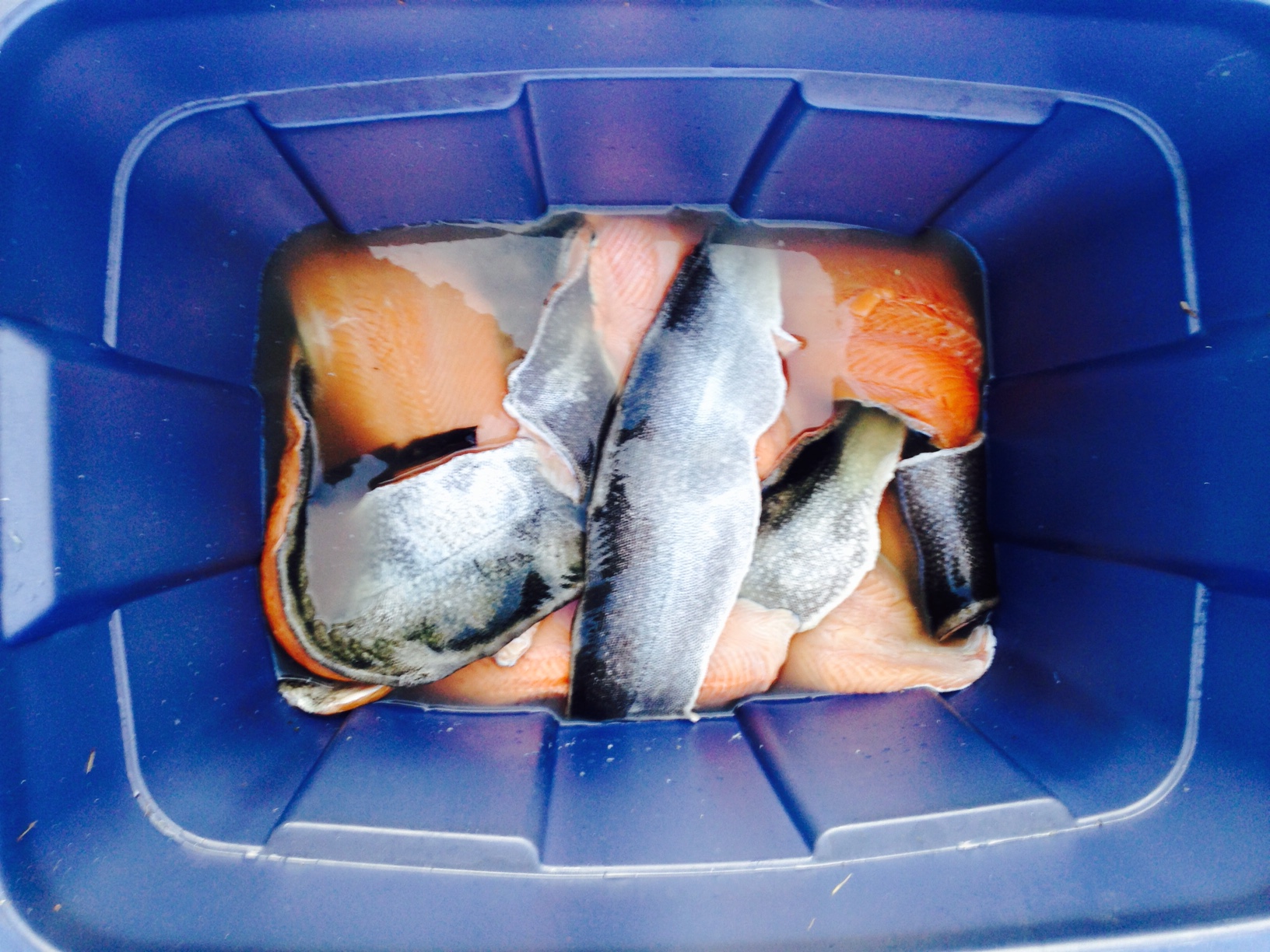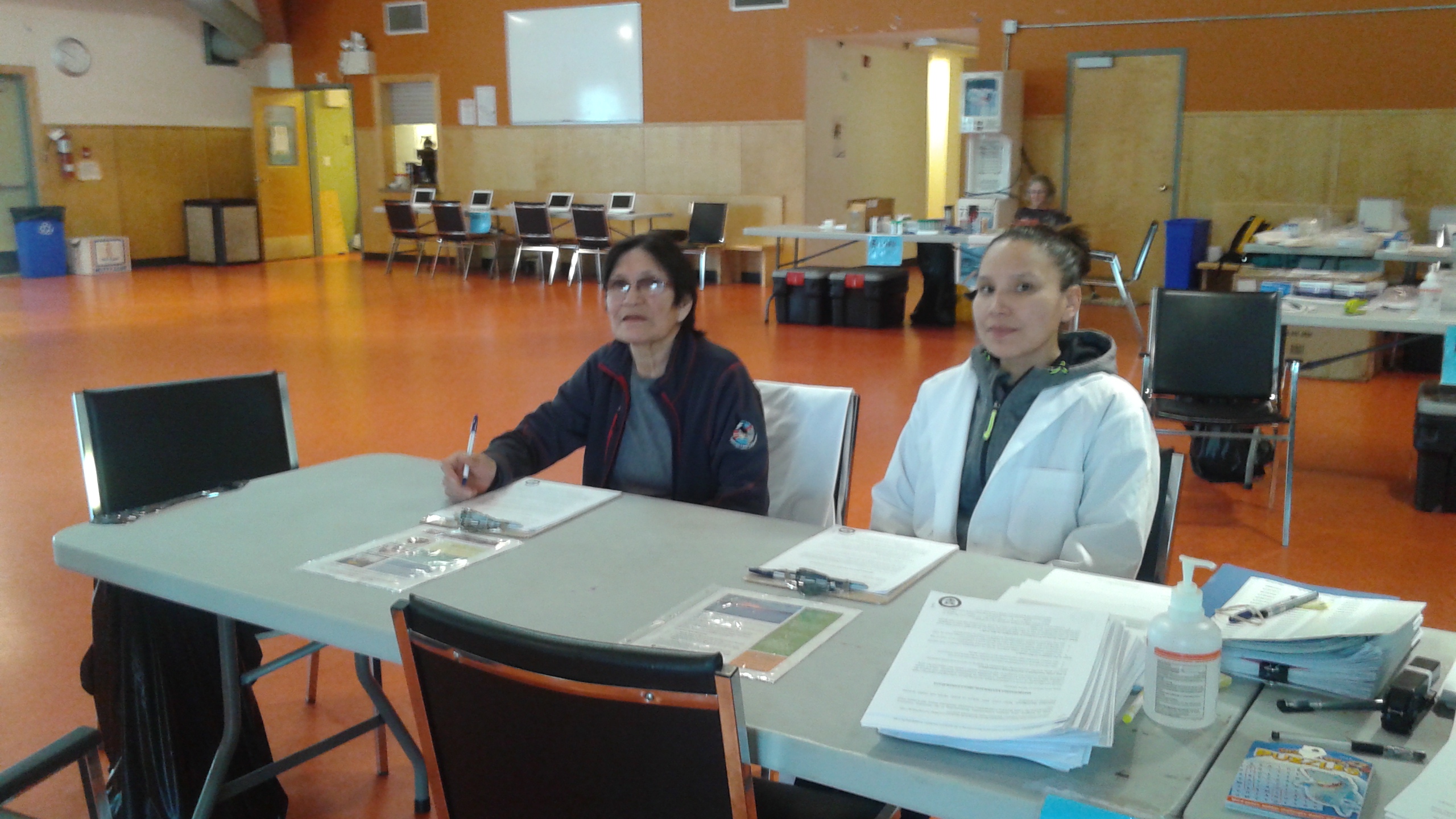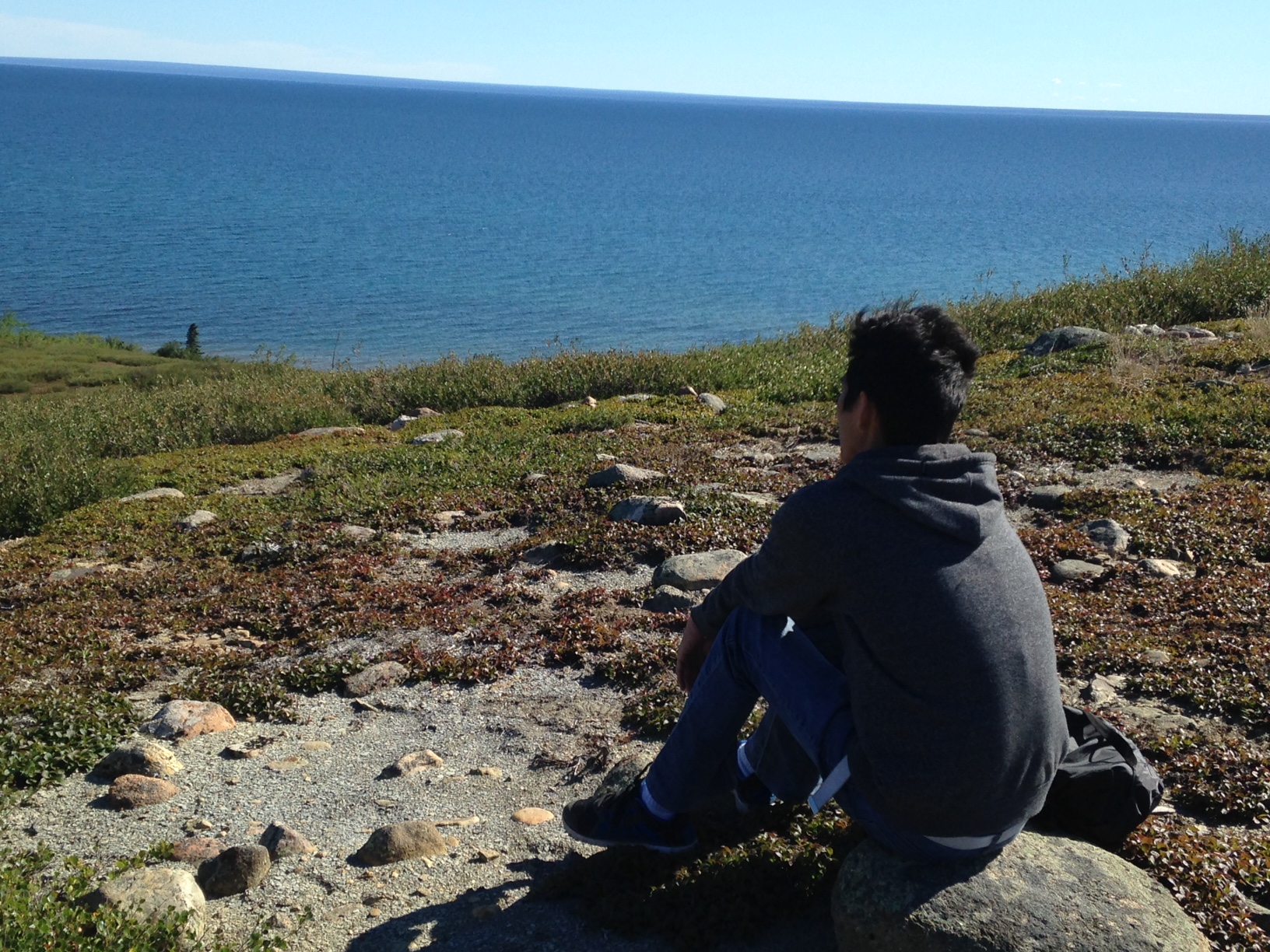2014-2019 Contaminant Biomonitoring
Country food consumption (locally harvested foods) is associated with healthy nutrition; however, these foods can also pose potential risks via exposure to contaminants, such as mercury and cadmium, which can be naturally presented in the environment. Elevated mercury concentrations in some fish samples in the Northwest Territories have resulted in a series of food consumption notice emitted by the Northwest Territories Health and Social Services Department to suggested people to limit their consumption of walleye, northern pike, and lake trout from specific lakes. Also, a consumption notice has also been placed on the kidneys and liver of moose from some parts of the Northwest Territories. However, it is important to keep in mind that traditional food consumption is associated with high intake of vitamins and essential nutrients and has a cultural significance in the region.

Therefore, a multi-year study has been proposed within the Dehcho, Sahtú and Hay River regions in order to investigate the current levels of contaminant exposure among participating communities. This work, funded by the Northern Contaminants Program, will result in a strategy to promote the use of country foods in order to improve nutrition while reducing contaminant exposure. We consulted communities’ leaders through emails, phone calls and in-person meetings. When the community leaders and members were interested in the project, the research team came back for one week and proceed to the collect of hair, urine and blood to measure metals (mercury, cadmium, uranium, etc.), organic pollutants (pesticides, flame retardants, etc.) as well as nutrients (selenium, omega-3). We also invited participants to complete two food surveys and one health message awareness and perception survey, supported by local coordinators. In Sahtu, the project was completed in three communities: Tulit’a, Délı̨nę, K’asho Got’ine (February 2017- March 2018). Participants will receive their own results before March 2019, and the research team will be in the region to report the results during public meetings.
Mutual understanding between different languages (Slavey, English, French), different cultures (Dene, other), and different types of knowledge (on the land, academic) is potentially a challenge. In addition, making the findings relevant and culturally appropriate for the region was essential to the project. Therefore, terminology workshops were organized with small groups in Tulit’a and Délı̨nę to discuss concepts and establish a common understanding of the topics. The output of this dialogue and the translated terms can be shared by the SRRB.

Team Members
- Brian Laird, Principal Investigator, University of Waterloo
- Mylène Ratelle, Academic Researcher, University of Waterloo
- Kelly Skinner, Academic Researcher, University of Waterloo
- Danielle Brandow, Academic Researcher, University of Waterloo
- Deborah Simmons, Ɂehdzo Got’ı̨nę Gots’ę́ Nákedı
- Délı̨nę Renewable Resources Council
- Fort Good Hope Renewable Resources Council
- Tulit'a Renewable Resources Council
- Michael Neyelle, Interpreter, Ɂehdzo Got’ı̨nę Gots’ę́ Nákedı
- Leon Andrew, Interpreter, Ɂehdzo Got’ı̨nę Gots’ę́ Nákedı
- Walter Bayha, Interpreter, Ɂehdzo Got’ı̨nę Gots’ę́ Nákedı
- Camilla Rabisca, Local coordinator, K’asho Got’ine
- Stella Rabisca, Local coordinator, K’asho Got’ine
- Stella Bayha-Yallee, Local coordinator, Tulit’a
- Tracy Yakeleya, Local coordinator, Tulit’a
- Ruby Baton-Beyonnie, Local coordinator, Délı̨nę
- Dora Blondin, Local coordinator, Délı̨nę
- Rita Baton, Local coordinator, Délı̨nę
- Dakota Erutse, Regional Coordinator, Sahtú Secretariat Inc.
Funding and Support
Funding for this work was provided by the Northern Contaminants Program, which is jointly supported by Indigenous and Northern Affairs Canada and Health Canada (>95% of the funds). Additional support was received from Global Water Futures , Northern Scientific Training Program, the University of Waterloo, and the Population Biomonitoring Section of Health Canada. The research team is grateful for the assistance from the following organizations in the Sahtú Region: The Government of Northwest Territories Department of Health and Social Services; the Sahtú Renewable Resources Board; the Sahtú Secretariat Incorporated; the Sahtú Health and Social Service Authority. This work represents an ongoing collaboration between researchers at the University of Waterloo (Brian Laird, Heidi Swanson, Mylène Ratelle, Kelly Skinner, Rhona Hanning, Shannon Majowicz, Ken D. Stark), Trent University (Chris Furgal), University of Montréal (Michèle Bouchard), the Washington State University (Amanda Boyd), the Dehcho Aboriginal Aquatic Resources and Ocean Management (George Low), and the Sahtú Renewable Resources Board (Deborah Simmons).
Newsletters
- pdf Project Update 2025(352 KB)
- pdf Project Update 2024(322 KB)
- pdf Spring 2023 (Final Newsletter)(336 KB)
- pdf Winter 2020(406 KB)
- pdf Fall 2019(1000 KB)
- pdf Summer 2019(849 KB)
- pdf Spring 2019(883 KB)
- pdf Winter 2019(929 KB)
- pdf Fall 2018(263 KB)
- pdf Summer 2018(592 KB)
- pdf Spring 2018(568 KB)
- pdf Winter 2018(917 KB)
- pdf Fall 2017(608 KB)
- pdf Summer 2017(602 KB)
- pdf Spring 2017(937 KB)
Budget
Northern Contaminants Program 2014-2015/Simmons: $41,866
Northern Contaminants Program 2015-2019/Laird: $330,000
Health Canada 2016-2018/Laird: $14,000
For questions please contact:
This email address is being protected from spambots. You need JavaScript enabled to view it. or This email address is being protected from spambots. You need JavaScript enabled to view it.
1-519-888-4567 x30365 or 32720




 Phone: 867-374-4040
Phone: 867-374-4040 Email:
Email: